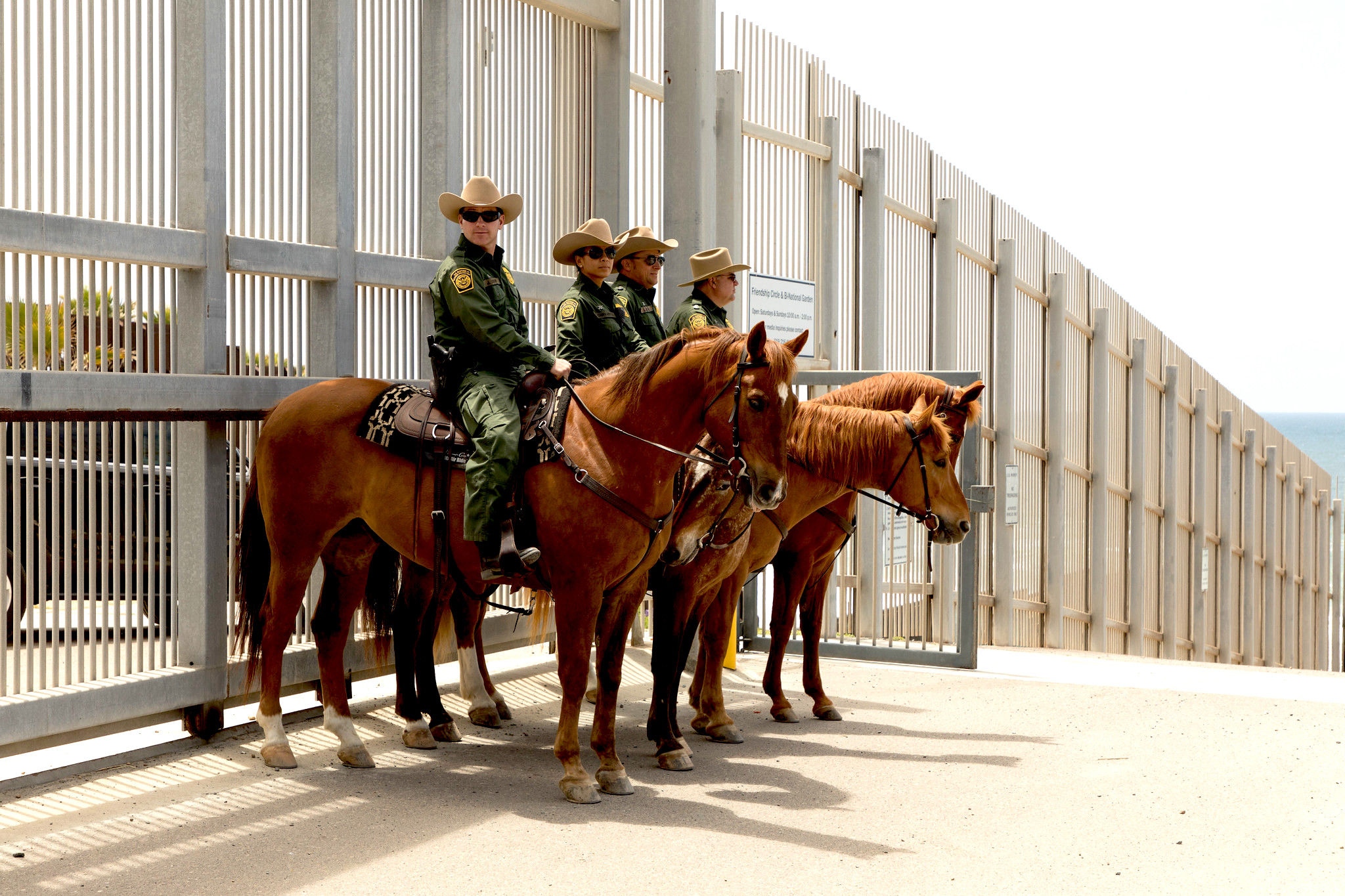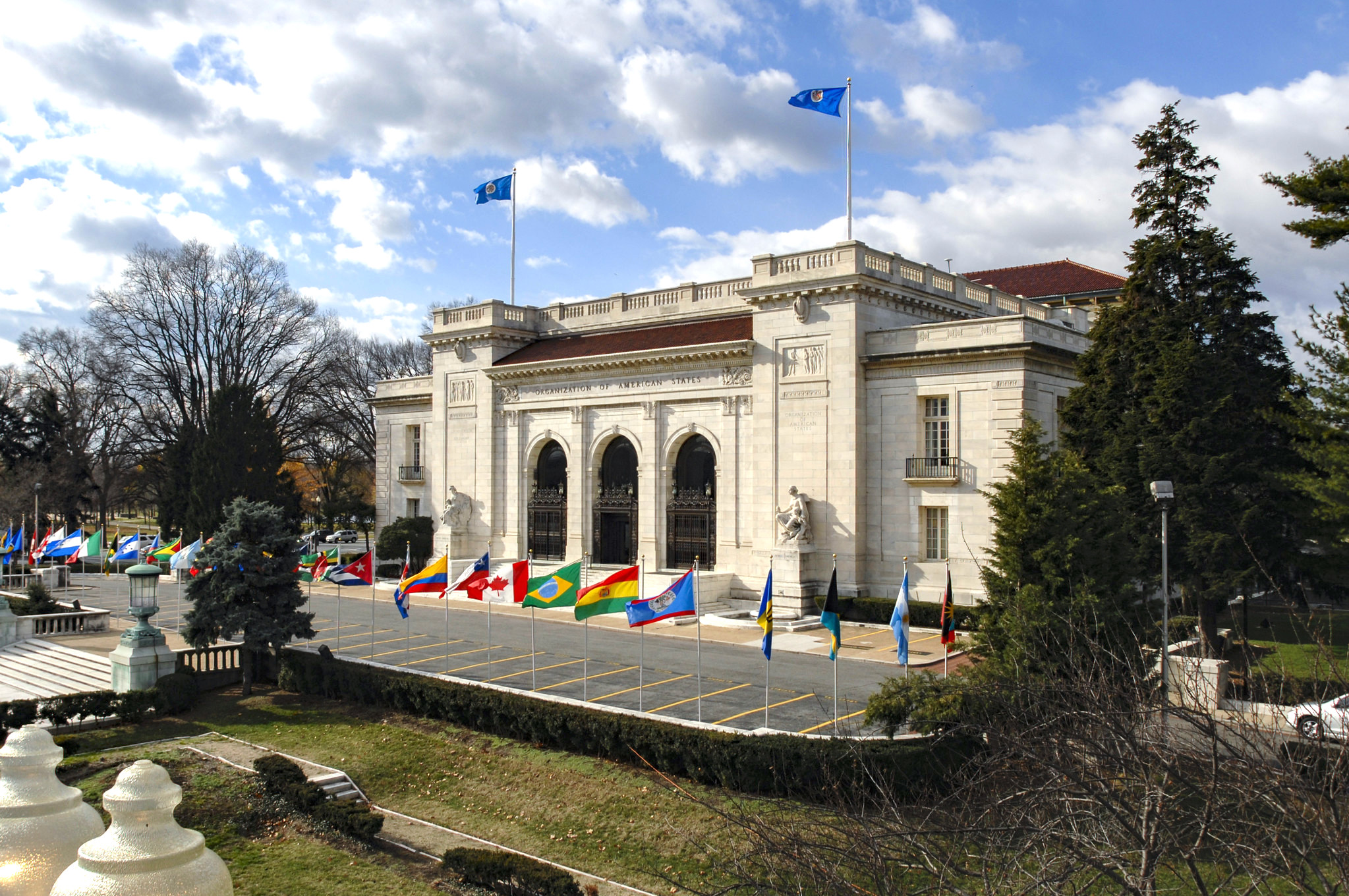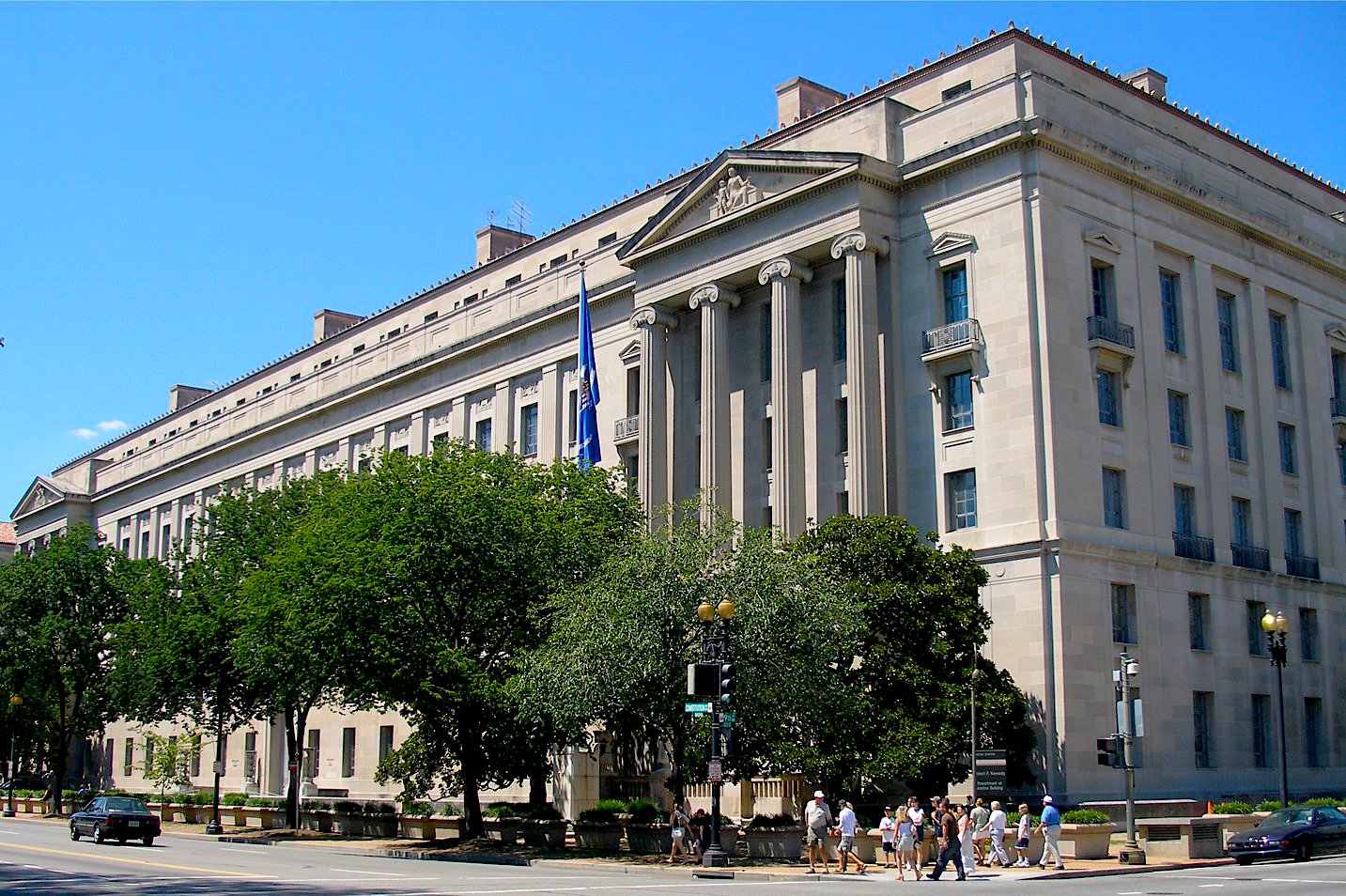Marjorie Cohn highlights the first case being heard by the commission involving violence committed by U.S. law enforcement.

U.S. Customs and Border Protection agents on duty in San Diego, on the U.S.-Mexico border in 2018.(Mani Albrecht, U.S. government)
 For the first time, the Inter-American Commission on Human Rights has agreed to hear an extrajudicial killing case involving violence committed by U.S. law enforcement.
For the first time, the Inter-American Commission on Human Rights has agreed to hear an extrajudicial killing case involving violence committed by U.S. law enforcement.
The commission is a body of the Organization of American States, which includes the United States. It considers cases involving torture, massacres, extrajudicial killings and disappearances in the Americas.
On May 28, 2010, Anastasio Hernández Rojas, a 42-year-old long-time San Diego resident and father of five, was crossing the border from Mexico into the United States when he was apprehended and tortured by U.S. Customs and Border Protection (CBP) agents.
He died in the hospital a few days later from his injuries. In order to cover up their crimes, the agents attempted to destroy evidence and create a false narrative that portrayed them as the victims and Hernández Rojas as the aggressor.
After being taken to a detention center, agents used escalating force against Hernández Rojas, although he was unarmed and injured. “CBP agents punched, kicked, dragged, Tased, hogtied, and denied Anastasio medical attention,” his family alleged in the complaint they filed against the United States in the Inter-American Commission on Human Rights.
“Autopsy reports confirmed that Anastasio suffered extensive injuries while in custody, including bruising and abrasions on his face and body, five broken ribs, and hemorrhaging of internal organs.” He had a heart attack, went into cardiac arrest and suffered brain damage, which ultimately led to his death. Both autopsy reports ruled Hernández Rojas’ death a homicide.
In a 2019 interview, Hernández Rojas’ widow Maria de Jesús Puga recalled hearing the video recording of her husband calling for help and begging for mercy. “When I heard his voice, he was really screaming in pain. I had never heard so much pain. He never screamed like that, he never cried,” she said.
“My family is destroyed, my family will never be the same again,” Puga testified at the Nov. 4 hearing before the Inter-American Commission on Human Rights. She told the commissioners that her “whole family, we have all been bearing this pain, 12 years, 12 years of pain and anguish not knowing why, why they killed my husband.”
Puga’s son Fabian, who was 12 when his father was killed, has been “filled with trauma and pain … the only thing he hears are the cries of his father,” Puga testified. Her daughter Yeimi, who was 20 at the time her dad was killed, said she feels “[t]otal disrespect…. I just felt like they just spit on my family. That’s just how I feel, so disrespected.”

OAS main building in Washington, D.C. (OEA – OAS, Flickr, CC BY-NC-ND 2.0)
Rafael Barriaga, a Mexican immigration official who witnessed CBP officers beating and tasering Hernández Rojas, told the commissioners, “I never thought I’d ever see in all the time that I was there as an officer. They dragged this person along the ground, they were rolling him like he was a barrel, they weren’t the slightest bit concerned about the pain.”
Barriaga didn’t see Hernández Rojas do anything to harm or threaten the agents. He was “absolutely not” a threat to the officers, Barriaga testified. None of the agents summoned medical assistance until after they had used the Taser several times and noticed that Hernández Rojas was unresponsive, Barriaga noted.
“He was humiliated, he was beaten, he was insulted,” Barriga said. “They tased him in different parts of his body, causing seizures, to go into seizures, convulsions.”
Eyewitnesses told the agents to stop beating Hernández Rojas, according to Barriaga. “That’s enough,” they said. “He’s not an animal.”
In 2011, the family filed a civil lawsuit in U.S. District Court against the United States government for wrongful death and civil rights violations. After a long delay, the government agreed to pay the family $1 million to settle the case in 2017.
Before the civil settlement, the district court judge found that the witness testimony and video recordings “strongly counter the officers’ testimony during the height of the altercation.”
The judge concluded that “[t]he sheer number of officers available at the scene demonstrates rather strongly that there was no objectively reasonable threat to the safety of anyone other than Anastasio.”
In November 2015, after a five-year investigation, the U.S. Department of Justice (DOJ) announced it would not bring federal criminal charges against the officers responsible. Puga does not understand why the DOJ refused to charge the officers when “videos clearly show how they assassinated my husband, how they murdered him.”

U.S. Department of Justice headquarters in Washington. (CC BY-SA 3.0, Wikimedia Commons)
US Rights Violations
The family filed their complaint against the U.S. in the Inter-American Commission on Human Rights in March 2016. It alleged several violations of the American Declaration of the Rights and Duties of Man, to which the United States is a party, as a member of the Organization of American States.
Allegations in the complaint include violation of the prohibition against torture (Articles I, XXV & XXVI); violation of the right to life and liberty (Articles I & XXV); failure to investigate, prosecute and provide full reparations (Articles I & XVIII); violation of the family’s right to personal integrity (Articles I & XXVI); and violation of the right to equality before the law and the prohibition against discrimination (Articles I & II).
“This is a landmark case because it reveals an excessive use of force and a lack of accountability, which has had a negative impact on Mexicans,” the government of Mexico said in a statement commending the commission for taking the case.
At the Nov. 5 hearing, the United States refused to contest the merits of the family’s complaint. It asked the commissioners to dismiss the case because the family had received a civil settlement from the U.S. government, notwithstanding the DOJ’s refusal to bring criminal charges against the offending officers.
But previously, on July 23, 2020, the Inter-American Commission on Human Rights ruled that the complaint was admissible even though the family had received a settlement from the U.S. government. The Inter-American Commission wrote,
“[T]he criminal responsibility of the perpetrators of torture or extrajudicial killing is of a fundamentally different legal nature, as is in turn the international responsibility of the State for violation of its human rights obligations.”
The Inter-American Commission on Human Rights found that the family had established a prima facie case of violations of the American Declaration of Human Rights and Duties of Man linked to the torture and killing of Anastasio Hernández Rojas.
In an affidavit in support of the family’s complaint, former assistant commissioner of Customs and Border Protection Internal Affairs Office, James F. Tomsheck, explained how CBP agents lie to cover up their illegal use of force:
“It was standard practice for Border Patrol to defend incidents in use of force, to always make it appear that it was justified. This was frequently done by distorting or falsifying information that justified use of force. Border Patrol frequently attempted to spin incidents involving use of force that ended in death.”
CBP agents “see themselves as members of a ‘paramilitary organization’ and soldiers ‘on the front line’ of a war against criminal organizations and terrorism,” said a former deputy assistant commissioner for CBP internal affairs, describing the culture of impunity that permeates CBP.
“CBP is the most powerful, most abusive, and least accountable law enforcement agency in the country,” Andrea Guerrero, executive director of Alliance San Diego, which represents the Hernández Rojas family, told Truthout.
“Since Anastasio’s death, nearly 250 more people have died in an encounter with border agents, and no agent has been held responsible,” Guerrero added. “In fact, in the near 100-year history of Border Patrol, no agent has ever been convicted for killing someone.”
Rooted in White Supremacy

Border Patrol agent practices firing a Thompson submachine gun near El Paso in 1940. (Albert Wellman, Public Domain, Wikimedia Commons)
The U.S. Border Patrol was founded in 1924 in response to white supremacists’ fears that the “open-border policy with Mexico was hastening the ‘mongrelization’ of the United States,” Greg Grandin wrote in The Intercept.
White supremacists soon assumed control of the Border Patrol and made it a “frontline instrument of race vigilantism.” They recruited members from the Ku Klux Klan and the then-violent Texas Rangers.
“The dehumanization of immigrants that the CBP instills in its agents is a practice that encourages agents to perpetuate the abhorrent racist treatment of immigrants under their responsibility,” the Berkeley Center on Comparative Equality & Anti-Discrimination Law wrote in an amicus brief in the support of the family.
Guerrero said that the use of force by border agents is increasing, with an average of three incidents a day, and little-to-no accountability. “Given the scale of the agency, the scale of abuse, and the scale of impunity, CBP poses the greatest threat to human rights in the United States,” Guerrero charged.
“As the Anastasio case points out, the abuse and impunity in the United States are endemic to a justice system designed to protect law enforcement, not the communities they are sworn to serve,” 208 social justice organizations wrote in a letter to the Inter-American Commission on Human Rights in October.
In their case before the Inter-American Commission, the family is asking the commission to find that the United States violated the American Declaration of the Rights and Duties of Man.
It requests that the commission instruct the United States to: conduct a full investigation of Hernández Rojas’ killing; conform its use-of-force policies to its obligations under the American Declaration; enact legislation that criminalizes torture committed within the United States; enact legislation that prohibits the U.S. Border Patrol from internally investigating incidents involving death or serious bodily injury; reform the secret and one-sided grand jury system, which does the bidding of the prosecutor, who is often beholden to law enforcement; publicly acknowledge and apologize for violating Hernández Rojas’ and his family’s human rights; provide health and educational assistance to the family; and compensate the family for moral damages and damage to their life plans.
“Now is the moment for the American public and the world of nations to ask the hard questions about why border agents have been able to get away with so much for so long, abusing and killing its own citizens as well as migrants and travelers from all over the globe. Now is the time for the Inter-American Commission to hold the United States to account for its actions,” attorney Guerrero wrote in her email to Truthout.
Puga told the commissioners that her family will find peace only if justice is done. “There’s no peace without justice,” she said. “There is no peace.”
The commission’s decision is expected sometime next year.
Marjorie Cohn is professor emerita at Thomas Jefferson School of Law, former president of the National Lawyers Guild, and a member of the national advisory boards of Assange Defense and Veterans For Peace, and the bureau of the International Association of Democratic Lawyers. Her books include Drones and Targeted Killing: Legal, Moral and Geopolitical Issues. She is co-host of “Law and Disorder” radio.
This article is from Truthout and reprinted with permission.
The views expressed are solely those of the author and may or may not reflect those of Consortium News.

Oh, but there must be a misunderstanding…The Yanx never commit violence – not abroad and not at home.
If the plaintiffs prevail, then I am quite sure that the US Government will threaten to bomb and invade this Inter-American Commission of Human Rights. After all, we’ve already established the precedent by threatening the International Criminal Court should they ever dare to prosecute Americans.
“VERIFY: If an American is charged with a war crime, would the US invade the Netherlands?”
hxxps://www.wusa9.com/article/news/verify/american-is-charged-with-a-war-crime-would-we-invade-the-netherlands/65-e0353dd2-487a-40bd-ad78-63cc655921cf
The article highlights injustice but appears to be misleading as to the law. While the Carter administration signed the InterAmerican Convention on Human Rights, the US refused to ratify it, as did all English-speaking countries in the hemisphere, hence the United States is not subject to the jurisdiction of the InterAmerican Human Rights Tribunal nor to its Commission, … more’s the pity. It highlights just how hypocritical and deceptive the United States is as a “defender of human rights”. Hubris rules.
This is all symbolic, with no force of law, since the The Republic of Nicaragua v. The United States of America. In 1986, the International Court of Justice (ICJ) held that the U.S. violated international law by supporting the Contras in their rebellion against the Sandinistas and by mining Nicaragua’s harbors, but the US refused to recognize the Court’s jurisdiction. If the UN had been doing its job recently, it would have enforced the 2 Minsk Accords and avoided the Ukrainian disaster. But the UN is a lapdog for the US as is the rest of the collective West. Insanity: repeating the same behavior and expecting different results.
U.S. law enforcement agencies should not force refugees across the U.S.-Mexican border. Let people decide their better future. All the earth and the universe belong to God.
“Pelosi plans to address her future in Congress on Thursday”
What future?
All of this systematic brutality is happening right underneath her nose, if she and her colleagues allowed this what future do any of us have?
Bleak?
We deserve better than you!
Surely, you don’t expect the US to own up to anything do you? The US never obeys the law. It’s a violation of the laws of war to slaughter innocent, unarmed women, children, and old men but that’s exactly what the US Army did in My Lai (and worse). Did anyone pay a price? No. The US Army slaughtered over 500 unarmed, innocent civilians and only one person – William Calley – was convicted of 22 murders and sentenced to life in prison which turned out to be 3 odd years before Nixon commuted his sentence. These folks don’t have a hope in hell of getting any real justice. Sadly.
In My Lai at least Calley was convicted. No one has been charged in the Collateral Murder case. In My Lai the whistleblower was listened to by Congress. In the Collateral Murder case the whistleblower went to jail. In My Lai the journalist who broke the story won an award and got a job at the NYT. In Collateral Murder the journalist is in a high-security British prison.